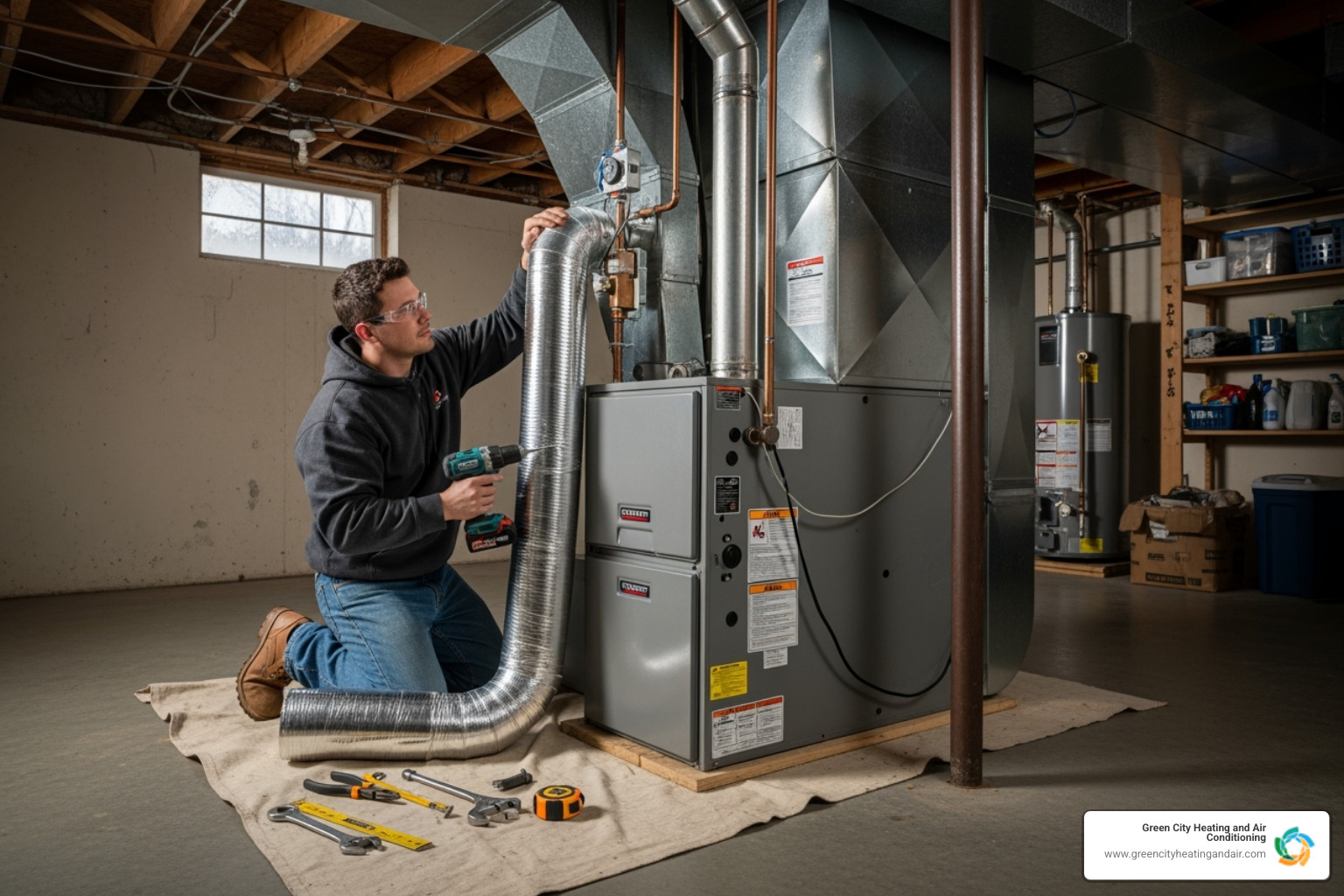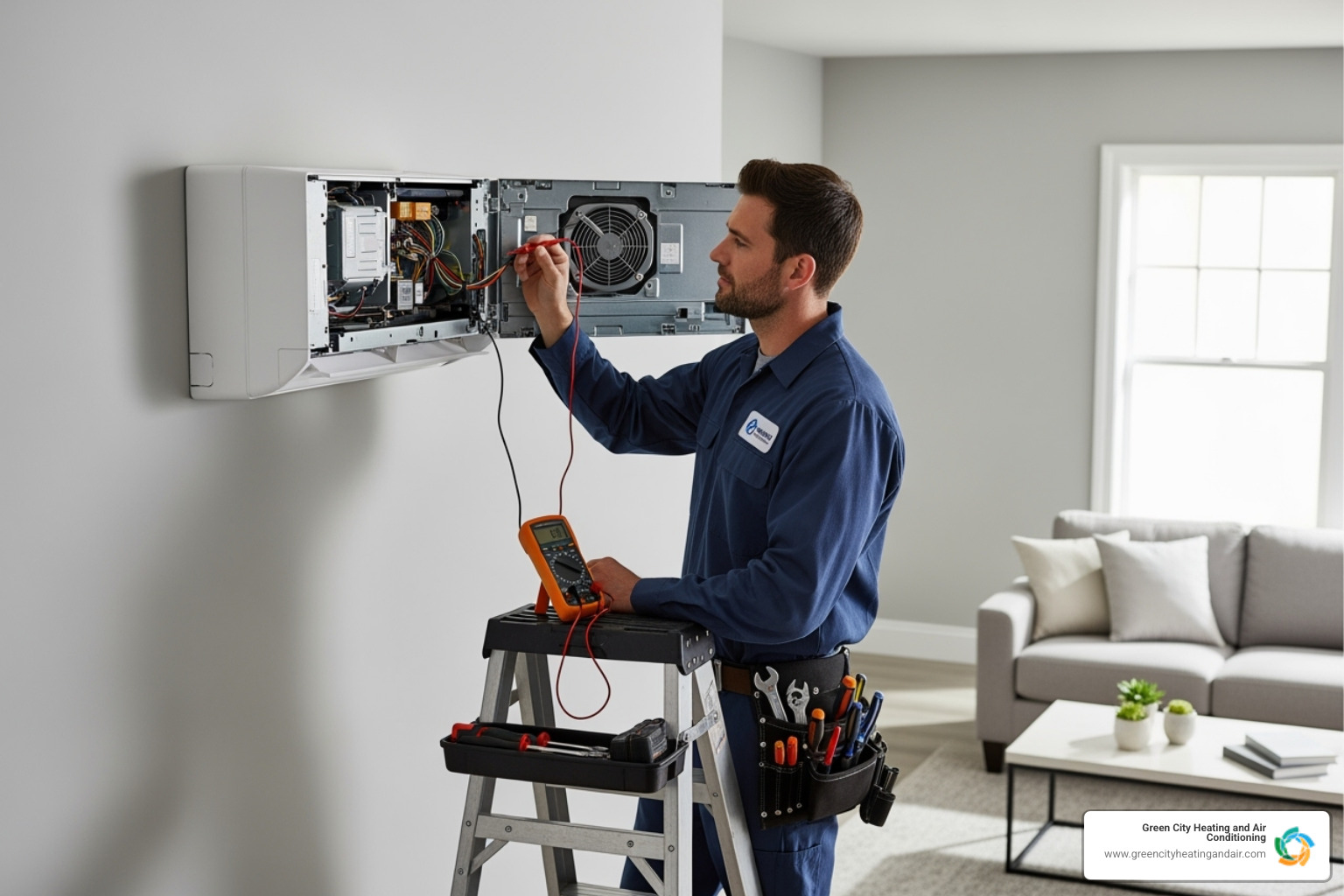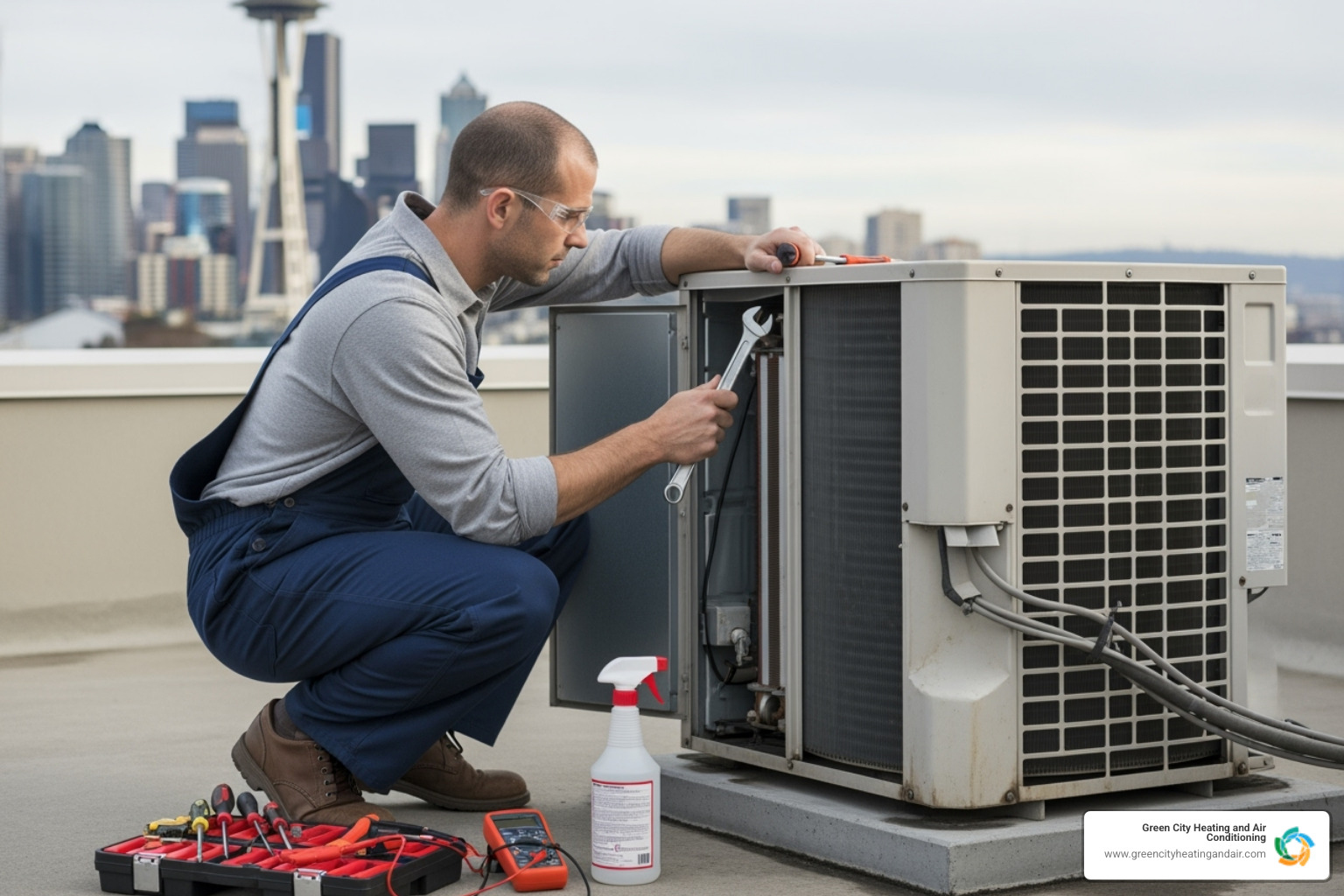Hearing loud banging noises from your boiler isn't just annoying—it can be a real sign something is wrong. Many homeowners in Clyde Hill overlook these sounds until they become more frequent or louder, but they are often early indicators of a technical issue inside the system. When a boiler starts making noise during operation, it’s a warning that should not be brushed off. Letting the problem go unchecked could lead to more expensive repairs or unexpected system failure.
Boilers are built to operate quietly. When something changes in how the system runs, like strange banging noises during a heating cycle, it usually means internal stress is building up. Left untreated, it can affect your system’s efficiency and even create safety concerns. Knowing what causes these sounds and when to call for help can prevent larger disruptions down the line.
Common Causes Of Banging Noises In Boilers
Banging sounds in a boiler are fairly common, especially with older systems or units that haven’t had consistent upkeep. These noises can stem from a few different mechanical issues, all of which can get worse over time if not addressed.
Here are some of the most common reasons a boiler might start to bang during operation:
- Trapped air inside the system: When air pockets get stuck in the pipes or radiators, they can stop water from flowing smoothly. This obstruction leads to vibrations that create loud banging or knocking noises.
- Sediment buildup in the tank: Over time, minerals and debris from the water settle in the bottom of the boiler. When that sediment hardens and heats up, it makes abrupt popping or banging sounds as the water heats and tries to push past the layer.
- Imbalanced water pressure: Low pressure can cause noise as water struggles to circulate, while high pressure forces water through the system too quickly and can slam internal parts together.
- Clogged or restricted pipes: Narrowed pipes caused by corrosion or internal debris change water flow and force it through awkward angles, which results in a knocking or banging sound.
- Delayed ignition: If gas builds up before the pilot light finally ignites, it causes a minor explosion inside the chamber, often described as a loud bang. This one poses a more serious risk and should be looked at immediately.
These issues do not typically fix themselves. For example, a homeowner in Clyde Hill called about persistent banging in their boiler during early morning cycles. Our technicians discovered a combination of sediment buildup and excess air in the radiators making the problem worse. Once those were cleared out and the pressure was balanced, the unit returned to quiet operation.
Ignoring these symptoms allows pressure and wear to build up inside your boiler. That can lead to a complete system shutdown, especially during high-demand times like summer maintenance cycles. Address each of these underlying causes early to avoid unnecessary stress on your system.
Potential Risks Of Ignoring Banging Noises
When strange noises start coming from a boiler, many homeowners assume it’s just the unit getting older. But ignoring those banging sounds can lead to more serious complications. What starts as a subtle knock might snowball into a complete failure of the system. In some cases, what seems like a harmless clunk can actually signal pressure issues that put stress on the heat exchanger or even loosen internal components.
If a boiler in your Clyde Hill home keeps running with unresolved noises, you may face:
- Longer heat-up times, meaning the system has to work harder
- Irregular heating or cold spots throughout the house
- Escalating utility bills as the boiler cycles inefficiently
- Damage to internal seals and valves, increasing the chance of water leaks
- Safety concerns due to gas pressure problems or ignition delays
This gradual breakdown makes the system unreliable and more expensive to maintain. It can also make your living space less comfortable, especially when demand for hot water or consistent airflow increases in cooler months or during specific tasks like hot showers and cleanups. Early preventive care is more cost-effective and provides peace of mind that your home remains safe.
How Our Professionals Diagnose And Fix Boiler Noises
When our technicians come out to look at a noisy boiler, they start by pinpointing the exact cause. Every part of the system is checked in detail, from water pressure levels to ignition timing. They use proven steps to identify where the sound is coming from and why it's happening.
Common steps in the process include:
1. Checking internal pressure to ensure it's within a proper safe range
2. Looking for signs of sediment buildup in the tank and flushing it when needed
3. Bleeding radiators or pipes to remove trapped air
4. Inspecting valves, thermostats, and burners for delayed ignition or inconsistent operation
5. Testing for obstructions or narrowed pipes caused by corrosion or scale
Once the cause is clear, our technicians repair or replace the affected parts. If buildup is the issue, a full system flush may be performed. For ignition timing problems, adjustments are made to gas controls. When air remains trapped even after bleeding radiators, the automatic air vent might be replaced. Every fix depends on the system’s condition, but the goal is always to restore quiet, efficient performance.
Preventive Measures To Avoid Future Boiler Issues
Routine care goes a long way in preventing noise problems and major boiler repairs. Setting up regular maintenance each year gives our professionals the chance to check for early signs of internal wear before those issues become serious.
Here are simple steps you can take to prevent banging noises from starting in the first place:
- Schedule yearly inspections to check pressure, valves, and ignition systems
- Request a full boiler flush to remove sediment buildup and reduce scaling
- Add an air separator to the heating system if air pockets are a recurring issue
- Keep the area around the boiler clean to minimize dust and debris intake
- Watch for changes in heating performance and unusual sounds between service visits
These steps help keep the system running quietly and lower the risk of future breakdowns. Following a consistent maintenance routine also helps extend the lifespan of the unit itself, which is especially important for homes in Clyde Hill that rely on boiler systems for both comfort and function.
Ensuring A Quiet And Efficient Boiler In Your Clyde Hill Home
Strange banging noises coming from your boiler should prompt quick action. They might seem harmless at first, but over time, they often lead to bigger repair headaches or inconvenient system failure. Taking the right steps early by inspecting, repairing, and maintaining your boiler keeps the system safe and performing the way it should.
Homes in Clyde Hill benefit from timely maintenance and expert diagnosis whenever symptoms show up. Dealing with these noise issues effectively not only protects your equipment but also creates a more comfortable indoor space. With proper care, you can count on your boiler to stay reliable and quiet year-round.
Taking control of your boiler system by addressing these issues promptly can ensure lasting comfort for your Clyde Hill home. Green City Heating and Air Conditioning understands the importance of reliable service, so consider our services for boiler replacement in Clyde Hill when persistent noise signals a deeper problem. For a quick estimate or to book a service visit, please contact us today.
More Blogs
Latest
insights and tips

Warmth Unleashed: The Ultimate Seattle Furnace Installation Handbook

Emergency Ductless AC Repair in Bellevue: Get Your Cool Back Fast










